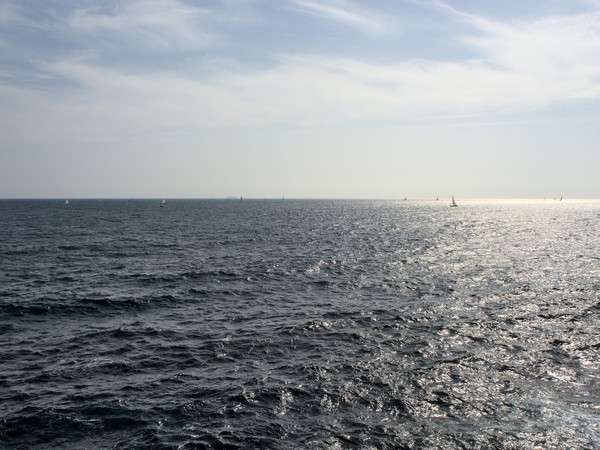
“Why should the voice always be accompanied by the pianoforte? There seem to me great possibilities in voices and instruments in combination.” Ralph Vaughan Williams said so in 1940, when he had not written songs for many years. It appears that the piano was an instrument he wasn't particularly fond, and by the time he had written most of his songs, before the Great War, he had used other instruments or ensembles to accompany the voice. Let's take, for instance, the Five Mystical Songs; there is a version with piano accompaniment (we listened to Easter), a version with orchestra and a choir (we listened to The Call), and a version with piano and string quartet.
Vaughan Williams didn't compose during the war; once he came back from service in France he did it again, and at some point between 1922 and 1927 he wrote Along the Field, a song cycle characterized by the accompaniment: they're songs for voice and violin. Unusual, given that the violin is an essentially melodic instrument with high tessitura; we find it, for example, along with cello and piano, in arrangements of folksongs by Beethoven or Haydn, usually singing with the voice. And I would say we have reached the key term: folksongs. It's difficult to imagine a singer and a violinist performing in a concert hall, but we can easily imagine them in a tavern where a fiddle accompanies the songs.
And Vaughan Williams knew a lot about traditional songs. He had collected them, studied them thoroughly and documented them. Maybe this way he came up with the idea of writing a cycle for voice and violin; in fact, he arranged at the same time two folksongs for voice and violin. Or maybe he followed the path initiated by his friend Gustav Holst (also a specialist in traditional songs), who had composed during the war the Four Songs for Voice and Violin.
The violin has a clear traditional colour in some songs of Along the Field, but that's not the general trend. Its melody sometimes doubles the voice, sometimes sings a different one, and all in all, it creates an austere and almost hypnotic atmosphere. Seven of the songs were released in October 1927, and the critic of Musical Time considered that the composer had wanted to give the poet the first place, and added: “Unless one is a poetry lover these songs may appear rather bare.”
The poet was one of the most influential names of that time, Alfred Edward Housman. Housman, I talked about him some time ago, had published in 1896 a collection of poetry, A Shropshire Lad, which had become well known during the Second Boer War; later, during World War I, it was read in every home and in every trench. Composers were not unaware of those sensitive verses and many of them set some poems into music; also Vaughan Williams, who in 1909 wrote On Wenlock Edge, for a tenor, string quartet and piano.
Housman didn't consider himself a poet, he was a professor devoted to research, and did not publish poetry again. Until he learned that his friend Moses Jackson was dying in a Vancouver hospital. Housman and Jackson had become friends while studying at Oxford; Housman had fallen in love with him, but it was an unrequited love. Jackson married and moved to Canada, and they maintained a distant friendship. When the terrible news arrived, Housman wanted Jackson to have something from him; within a few months he published Last poems, a collection of forty-two poems written partly during the previous weeks and partly, in the fifteen years following the publication of A Shropshire Lad.
Vaughan Williams chose poems from both collections for Along the Field, a cycle that was the last one for thirty years, since he didn't compose any more songs until the mid-1950s. After the premiere, he put them away into a drawer until 1954, when he revised and published them in their final form. That's to say, eight songs (instead of the nine of the first versions), three from A Shropshire Lad and five from Last Poems. I suggest we hear the third one, The half-moon westers low, which corresponds to the 26th poem of Last Poems. It is a very short song, which I think illustrates very well the hypnotic and mysterious atmosphere that this cycle conveys to me. Our interpreters are Mary Bevan and Jack Liebeck. As always, I hope you like it and enjoy listening to the whole cycle.
Last week marked 150 years since the birth of Ralph Vaughan Williams, and with this article and this song we join the celebration of his music. Music that, with or without birthdays, we deeply love in this place.
The half-moon westers low, my love,
And the wind brings up the rain;
And wide apart lie we, my love,
And seas between the twain.
I know not if it rains, my love,
In the land where you do lie;
And oh, so sound you sleep, my love.
You know no more than I.


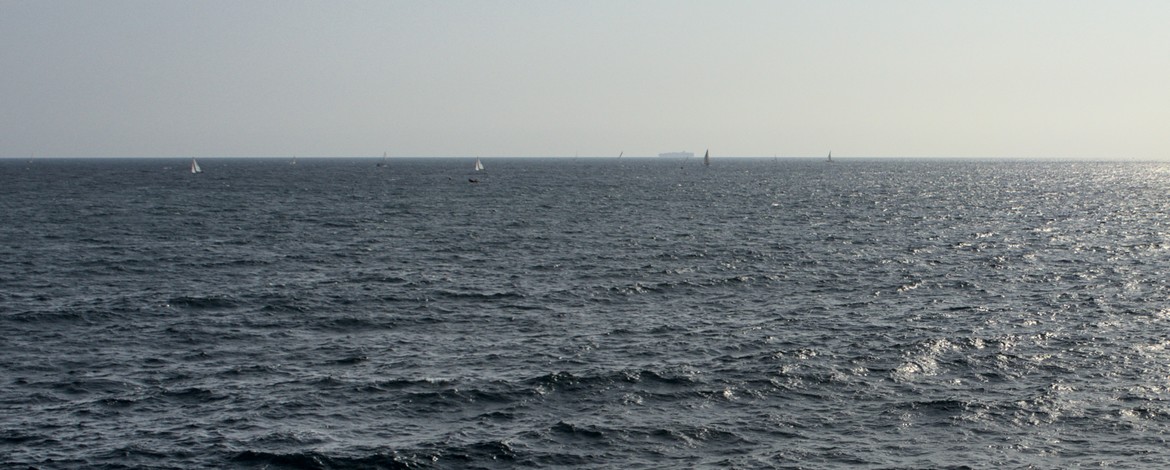
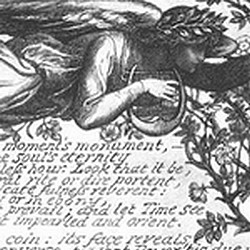
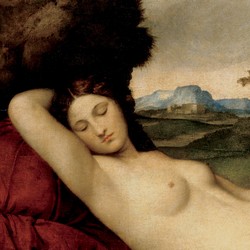
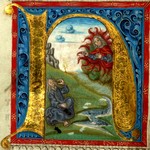











Comments powered by CComment